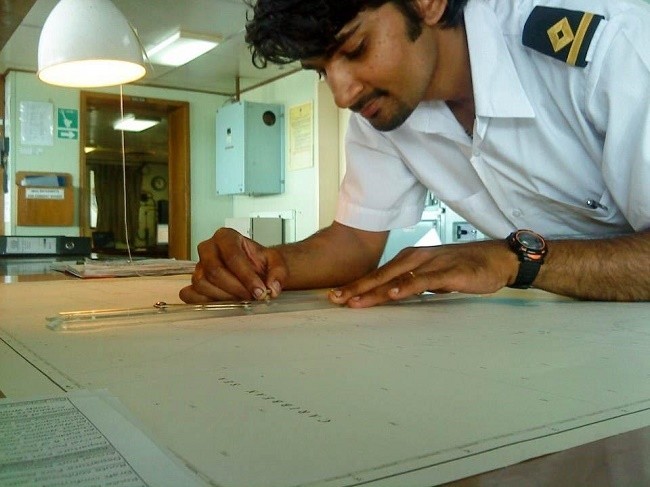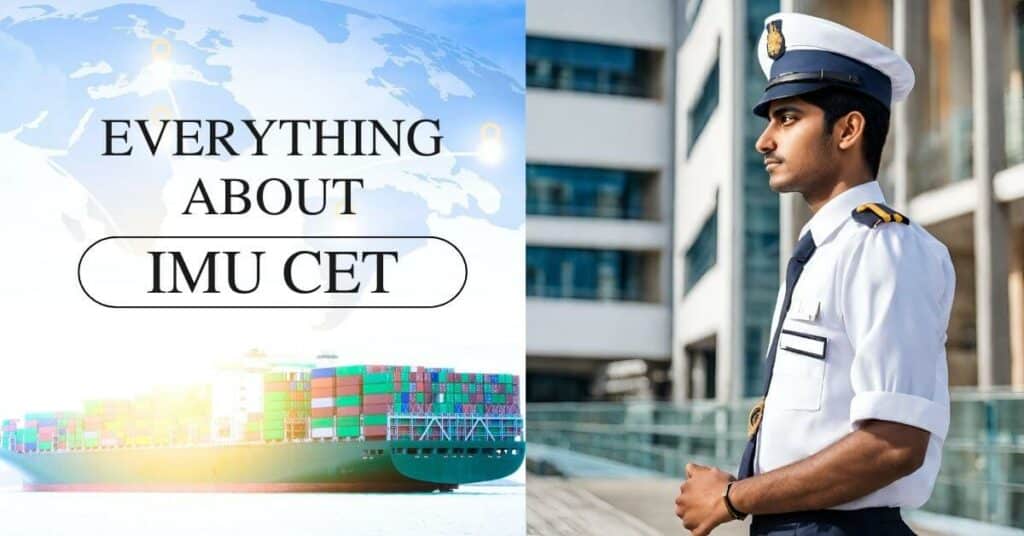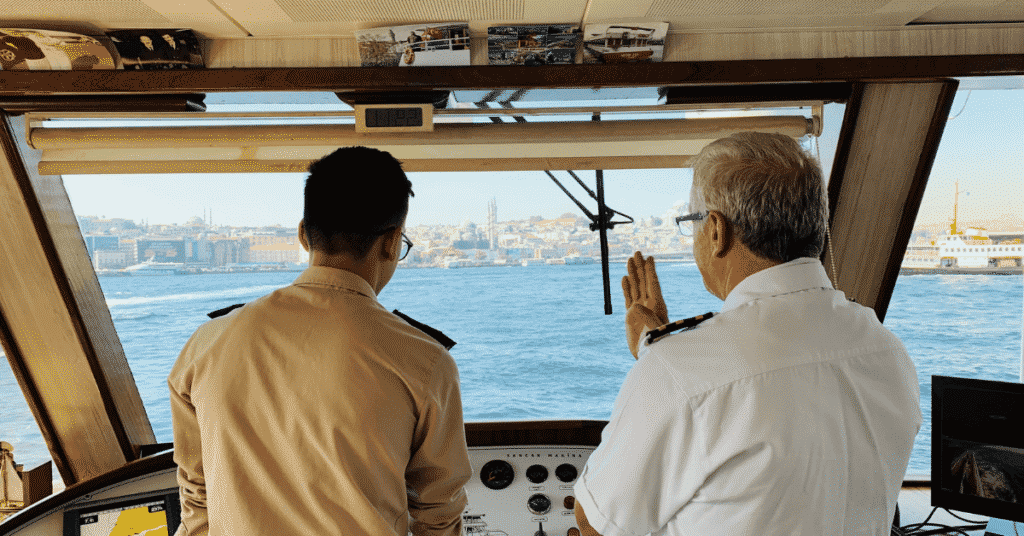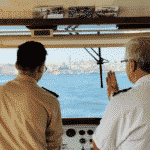Maritime Examinations & Courses – Are They Worth the Moolah ?
In today’s 21st century shipping scenario, sophisticated computer controlled machinery will completely replace the ageing mechanical control systems, of the past century. The sea change taking place is also due to the accelerated phase-out of old ships, which fail to meet the current and future norms.
For today’s mariners, ‘hands-on’ experience, on the latest types of control systems and microprocessor-controlled engines, is becoming an increasingly significant factor, for landing lucrative jobs and improving one’s long-term prospects. To reach the stage of successfully managing these complex systems, the modern seafarer has to have more than a good theoretical background, besides sufficient practical experience.
In the ‘good old days’, a sea-going engineer didn’t really need too much by way of theoretical knowledge. He never had to refer to anything beyond the specific machinery manuals, quite a few of which didn’t provide very comprehensive instructions anyway, usually only giving basic routine maintenance instructions and a trouble-shooting chart.

In addition, he probably had an old, ‘dog-eared’ copy of John Lamb’s ‘Question & Answers’, which was more than adequate, for those times ! Times have changed, and the need of the hour is different. A complete understanding, of complex control systems, requires not only a good background knowledge, but also very specific understanding (and practical experience), which helps to run systems optimally. Which brings us to the question of a mariner’s Examinations.
Today, the choice is to carry out an approved preparatory course in India, followed by taking examinations and orals here, OR, to do the same in other countries, like U.K. and Australia. What, then, is the correct choice, for a bewildered student ?
The answer to this is not simple, so we would like to look at some of the common ‘Pros and Cons’. This would help students to choose for themselves, based on their specific needs and finances. The difference between merely obtaining a Certificate of Competency and pursuing higher education is, that Education, from a reputed institution, is always a good investment of time and money.
Doing a full-time course in any foreign country is bound to be expensive, both in terms of cost of fees (which are high, when converted to rupees), as well as in day-to-day expenses, besides the cost of travelling to and fro.
However, this may well turn out to be the easier option for some, if finances are no problem. Even for those who find it difficult to raise funds, educational loans are now much easier to obtain, without needing too much of paper-work and time.
Another possible advantage is, that when the student understands the time and expense that he needs to put in, he is that much more hard working and conscientious, which would improve his chances of doing well. The determination and hard work act as confidence-boosters, which may make the difference, at the time of examinations.
The down -side of this is, that a seafarer, who is hardly ashore for much time in between two contracts, is not able to spend much time with his family. The only opportunity, that he really gets to be home, for any long length of time, is, when he is down for his ‘tickets’ viz. exams. If he should have to do his courses abroad, this would not be possible.
Another possible problem, with spending so much money, especially in the case of a loan from a Bank, is the risk of difficulty in paying-back such comparatively large amounts, when there is no guarantee of getting an immediate job, on successful completion of the course and examinations. This needs to be taken into consideration, especially during periods of ‘slumps’, which are periodically occurring, in a cyclical industry like shipping.
As against this, we have the student who decides to do his courses and examinations in his home-town (if he lives in a Metro, where there is the facility of such a centre). Not only is he more comfortable at home, and thus able to devote complete time and energy to his studies, but is also happy to be with his family and friends in the evenings, when studies are over for the day.
Here again, this may not prove to be suitable for those, who are not very hard-working, since they are not having their ‘backs to the wall’. They perceive that they can ‘take it easy’ for a while, hoping to cram in their maximum efforts at the end. Unfortunately, things don’t quite happen that way, and many students end up with mediocre results, that fail to impress their Examiners.
Instead of looking for the fault within, they are quick to distribute the blame to other sources, making remarks like : “In terms of quality of post-sea courses, India is equally good, if not better. However, something needs to be done about the examination system, which is biased. Examiners are looking for what you don’t know, as compared to other countries, where they want to find out what you do know.”
Or even : “ Its frustrating to keep appearing, over and over again. The time wasted ashore could have been used for earning money to pay for the foreign courses, which would have taken much less time.”
No doubt, there may be some truth in certain cases, since examiners are only human. Some are termed as ‘good’ (read as ‘lenient’) and some are ‘bad’(read as ‘strict’). However, it is unfair to blame the complete system, without trying to find all the root causes, which may well be in the efforts of the person concerned, or rather, the lack of efforts.
Some countries’ systems like to assure ‘100 % passing’, as this is a lucrative income. They knowingly ‘pass’ foreign students, since foreign students are charged much higher rates, than local ones would pay. However, if an incompetent person is ‘passed’, when he is not really up to the mark, is this really helping him ?
It is not mere ‘passing’ or ‘failing’, which should concern the seafarer in the long run, but an honest appraisal of his abilities, which would enable him to do his job safely, without endangering the vessel and his own future.
Finally, in times of a slump, finding a job after the COC, in a company of your choice, is like finding water in the middle of the Sahara desert ! For deserving pre-sea students from Indian institutes, there are hardly any scholarships or bursaries available for further studies, which prove to be a major hurdle for many. This obviously implies a larger hole in Daddy’s pocket, or a staggering student loan, in the case of those who are financially weaker.
With the present trend of institutes, like most Engineering colleges, charging enormously increased fees in India (since Government is withdrawing subsidies), the burden is being passed on to the unfortunate end-users, viz. the students. Where are students, or even parents, to find the necessary funds, when the staggering cost of education is now in multiples of lakhs per year ???
Image Credits:
vikingrecruitment, shearforce
Disclaimer :
The information contained in this website is for general information purposes only. While we endeavour to keep the information up to date and correct, we make no representations or warranties of any kind, express or implied, about the completeness, accuracy, reliability, suitability or availability with respect to the website or the information, products, services, or related graphics contained on the website for any purpose. Any reliance you place on such information is therefore strictly at your own risk.
In no event will we be liable for any loss or damage including without limitation, indirect or consequential loss or damage, or any loss or damage whatsoever arising from loss of data or profits arising out of, or in connection with, the use of this website.
Do you have info to share with us ? Suggest a correction
Disclaimer :
The information contained in this website is for general information purposes only. While we endeavour to keep the information up to date and correct, we make no representations or warranties of any kind, express or implied, about the completeness, accuracy, reliability, suitability or availability with respect to the website or the information, products, services, or related graphics contained on the website for any purpose. Any reliance you place on such information is therefore strictly at your own risk.
In no event will we be liable for any loss or damage including without limitation, indirect or consequential loss or damage, or any loss or damage whatsoever arising from loss of data or profits arising out of, or in connection with, the use of this website.
Latest Marine career Articles You Would Like:
Subscribe To Our Newsletters
By subscribing, you agree to our Privacy Policy and may receive occasional deal communications; you can unsubscribe anytime.















